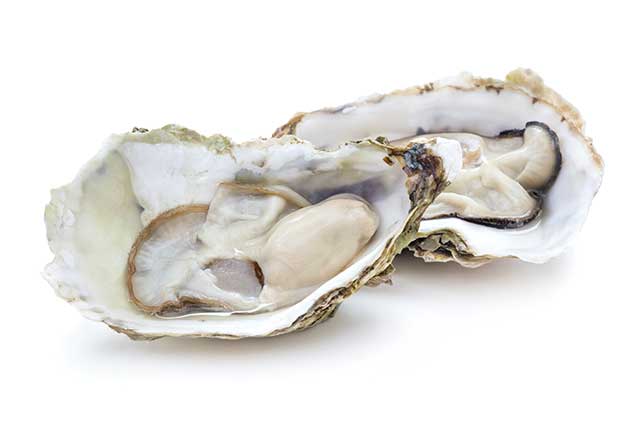
Oysters are a type of shellfish that are commonly consumed around the world. They can be eaten raw, cooked, smoked, or canned.
NUTRITIONAL FACTS
One oyster (3 ounces) contains:
Calories: 57
Protein: 6 grams
Fat: 1 gram
Carbohydrates: 6 grams
Fiber: 1 gram
Sugar: 2 grams
Vitamins and minerals:
Vitamin B12: 9% of the Daily Value (DV)
Zinc: 7% of the DV
Copper: 6% of the DV
Iron: 5% of the DV
Selenium: 19% of the DV
Oysters are also a good source of omega-3 fatty acids.
HEALTH BENEFITS
Oysters have a number of health benefits due to their nutritional content.
Protein: Oysters are a good source of protein, which is essential for cell growth and repair.
Omega-3 fatty acids: Oysters are a good source of omega-3 fatty acids, which are beneficial for heart health and cognitive function.
Vitamins and minerals: Oysters are a good source of vitamins and minerals, including zinc, selenium, and vitamin B12.
HEART HEALTH
Oysters are a good source of omega-3 fatty acids, which are beneficial for heart health. Omega-3 fatty acids help to reduce inflammation and lower blood pressure. Additionally, they can help to reduce the risk of heart disease and stroke.
COGNITIVE FUNCTION
Oysters are a good source of omega-3 fatty acids, which are beneficial for cognitive function. Omega-3 fatty acids help to improve memory and increase brain activity. Additionally, they can help to reduce the risk of Alzheimer’s disease and dementia.
IMMUNE SYSTEM
Oysters are a good source of zinc, which is essential for the immune system. Zinc helps to protect the body from infection and disease. Additionally, it can help to speed up the healing process.
DIGESTION
Oysters are a good source of selenium, which is essential for digestion. Selenium helps to break down food and absorb nutrients. Additionally, it can help to reduce the risk of gastrointestinal disorders.
Pregnancy
Oysters are a good source of iron, which is essential for pregnant women. Iron helps to form hemoglobin, which carries oxygen to the baby. Additionally, it can help to prevent anemia during pregnancy.
Vitamin B12
Oysters are a good source of vitamin B12, which is essential for the nervous system. Vitamin B12 helps to produce myelin, which protects nerve cells. Additionally, it can help to prevent memory loss and cognitive decline.
RISKS AND PRECAUTIONS
Oysters can contain harmful bacteria, such as Escherichia coli and Salmonella. These bacteria can cause food poisoning. Additionally, oysters can contain toxins, such as mercury, which can be harmful to the body in high amounts.
Pregnant women and young children should avoid eating raw oysters due to the risk of food poisoning. Individuals with weakened immune systems, such as those with HIV/AIDS or cancer, should also avoid eating raw oysters.
Oysters should be cooked thoroughly to reduce the risk of food poisoning. Oysters can be boiled, baked, grilled, or fried.
CONCLUSION
Oysters are a type of shellfish that are commonly consumed around the world. They can be eaten raw, cooked, smoked, or canned. Oysters have a number of health benefits due to their nutritional content.
Oysters are a good source of protein, omega-3 fatty acids, vitamins and minerals. Additionally, they can help to improve heart health, cognitive function, and digestion. However, oysters can also contain harmful bacteria and toxins. Pregnant women and young children should avoid eating raw oysters.
Oysters can be a healthy addition to the diet, but they should be consumed in moderation. Individuals with seafood allergies should avoid oysters. If you have any concerns, please speak to your doctor before consuming oysters.
How many oysters can you eat in one sitting
There is no definitive answer to this question as it depends on a number of factors, such as your size and health. Generally speaking, you should moderate your intake of oysters (or any food for that matter) and not eat them in excess. If you are unsure, please speak to your doctor or a registered dietitian.






